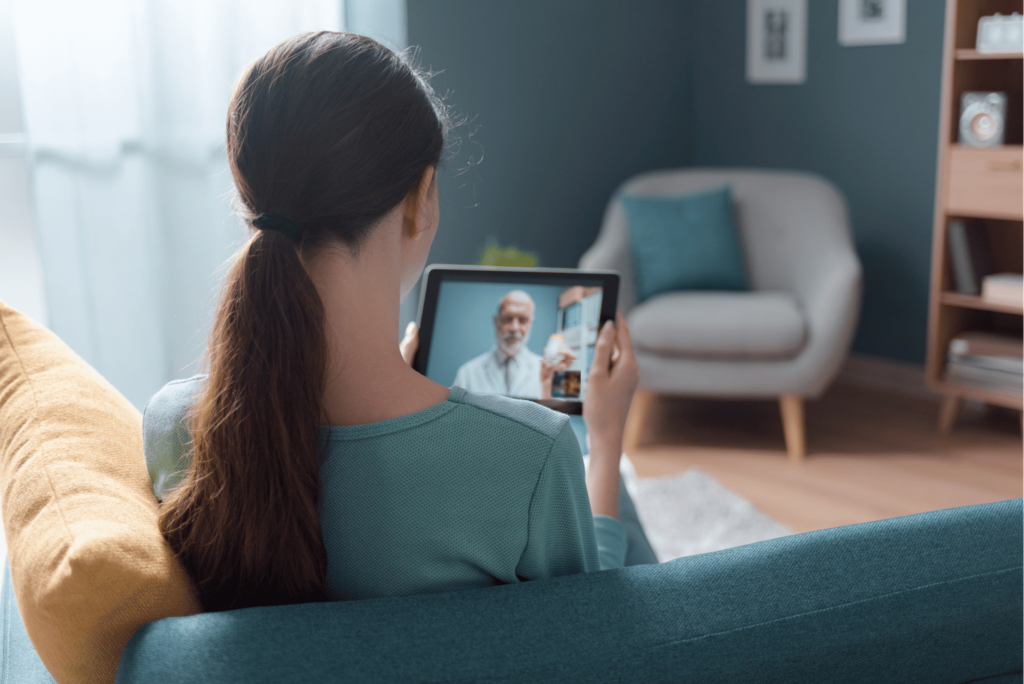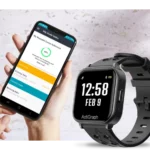With clinical trials digitalization and decentralization comes the possibility for patients to complete several of their clinical study procedures remotely, making their participation in clinical trials easier and less cumbersome than site-based trials.
The inclusion of a telemedicine option in a clinical trial allows a protocol visit to be performed remotely between the patient at home and the relevant clinical site personnel at the study site. If remote visits are planned in both decentralized and hybrid trials, how precisely do the televisits work and how beneficial can this really be to study patients, site staff, and sponsors?
Televisits can bring significant comfort to patients during their journey through a clinical trial
Many clinical trial situations can benefit from a televisit:
- When none of the procedures associated with a given study visit require the physical presence of the patient (e.g no MRI scan or drug infusion, which would require in-clinic equipment).
- When the patient and the site personnel need to talk through an extra visit that would previously have taken place at the site.
- When the patient cannot attend the site for a given study visit (e.g., disability, fever).
In such situations, and even more when the patient lives far away from the study site or experiences mobility issues, having flexible protocols that include remote video visits can be very reassuring for many study participants.
Having a telemedicine feature integrated into the eCOA app increases patients benefits:
Although many platforms already exist to perform video chats, adding the video visit option directly into the eCOA app has the significant benefit for patients of using a single system. Trishna Bharadia, patient advocate and health industry expert, emphasizes:
‘’It can’t be underestimated just how complex and how difficult it can be for patients if they’re having to navigate multiple systems when they’re already having to think about so many different things”
- When patients already have to complete ePROs regularly and potentially eDiaries every day (sometimes twice a day), having the same tool with a single sign on is much more user-friendly than using multiple systems.
- Embedded in the eCOA app, the televisit function is easy to use, without any additional set-up needed.
- The televisit contributes to decentralizing clinical trials and increasing study accessibility for patients. It can be combined with other features, such as an eCOA solution to complete questionnaires from home and a WebCOA back-up option activated remotely by site staff to optimize data entry in the event of device failure.
A televisit option also reduces the burden on the study site
The workload of site staff is always high and the issue of managing multiple studies for multiple sponsors with multiple systems is well known. As for study patients, we should make the lives of site staff easier to improve their clinical trial experience.
By creating another option for interacting with study patients, and by minimizing the number of systems, the eCOA app embedded televisit brings multiple benefits to site staff:
- Offering a simple system integrated into the eCOA app increases user-friendliness and reduces the burden of using multiple login credentials to access several systems.
- Including the option to talk to study patients or to conduct a visit remotely can bring some flexibility in the organization of study staff. It reduces the burden on site staff, whilst still allowing the patient to be seen: seeing how the patient looks and behaves and visually tracking reactions to questions brings much more information than a simple phone conversation.
For sponsors, the inclusion of remote video visits in the study protocol aims to improve patient compliance and increases the chance of study success
Clinical teams need to trust that the study will continue. The inclusion of televisits means that teams can be reassured that a study will continue according to the protocol schedule even when patients are not able to attend the study site for visits.’
As the use of televisits is a recent practice in clinical trials, there is limited evidence on its use and the impact on patient compliance is not well defined. However, it can be expected that televisits will expand patient compliance by allowing their participation in clinical trials from the comfort of their home or wherever they may be during their holiday or other travel.
Integrating the remote video into the eCOA app ensures a high level of control:
- The timestamp of the televisit is stored in the audit trail and confirms that the visit occurred, how long it lasted, and who attended (site staff and patient number).
- As only authorized sites (and associated patients) can perform televisits, sponsors will also be able to keep control of its use and adapt their strategy according to the specifics of the study sites. The authorization can be granted either at study setup or during the course of the study. Only patients who signed the relevant consent to use the televisit option will be granted access to the option by their site staff, which adds another level of control to the televisit function.
- The televisit can be limited to work only with WIFI or can be open to mobile connectivity. This can be defined for each site, since volume of televisits and the cost may vary between countries.
As operating models turn to decentralizating clinical trials, the televisit option is likely to take a more prominent place in clinical study protocols. When made simple and embedded into the eCOA solution, it offers an additional avenue for reducing the burden on patients and sites and improving their clinical trial experience, as well as guaranteeing the study continuum for sponsors.














